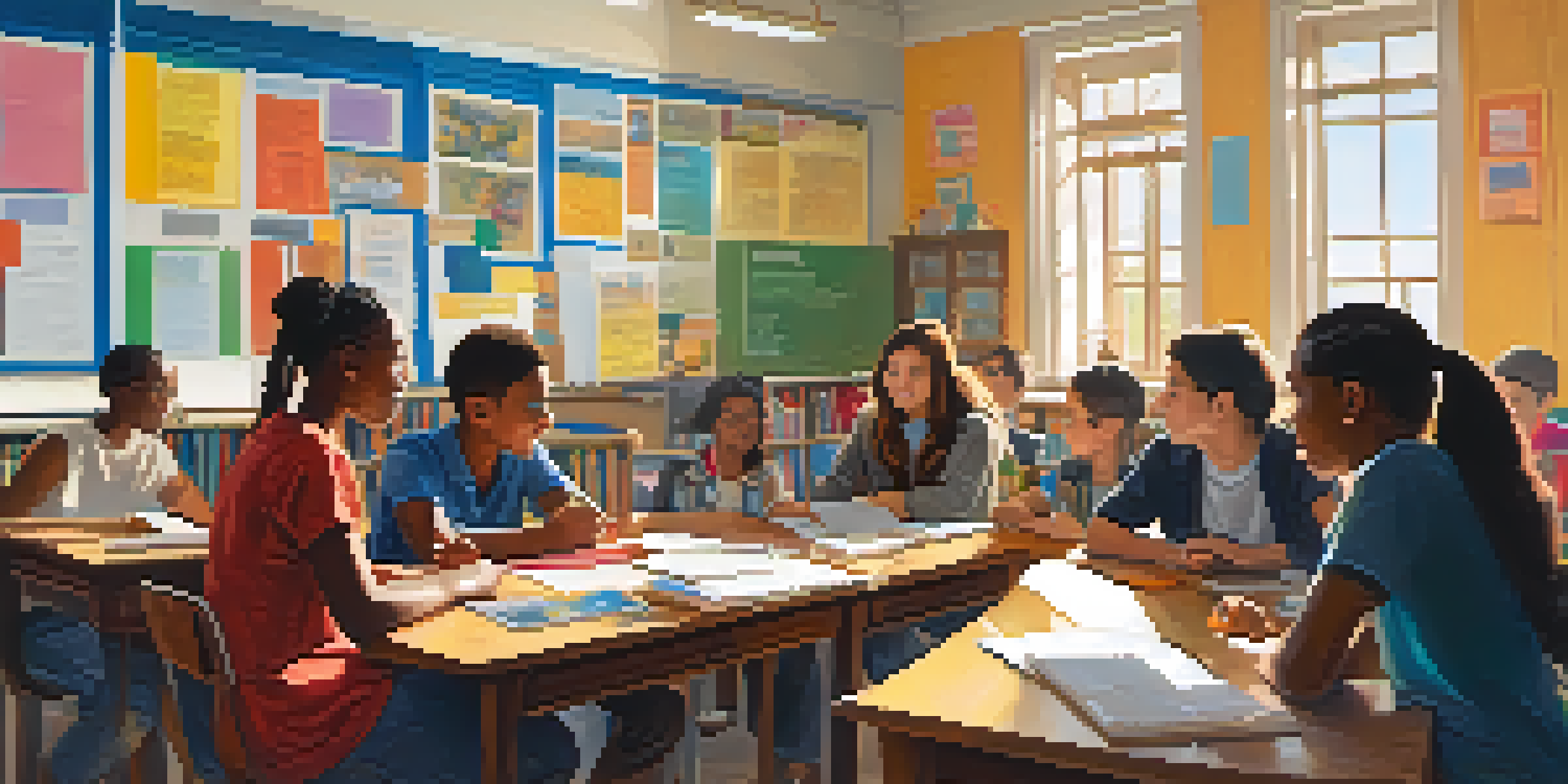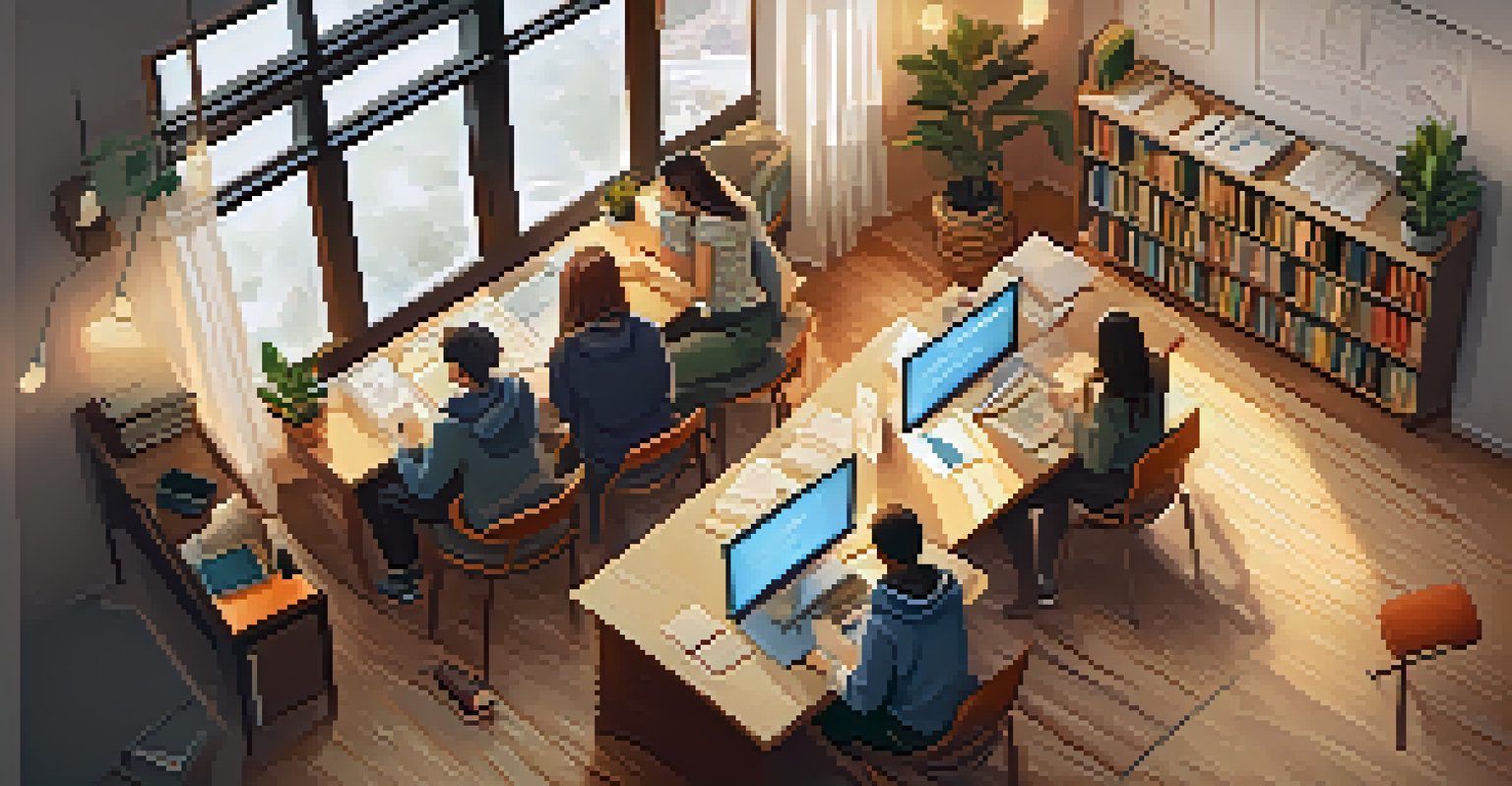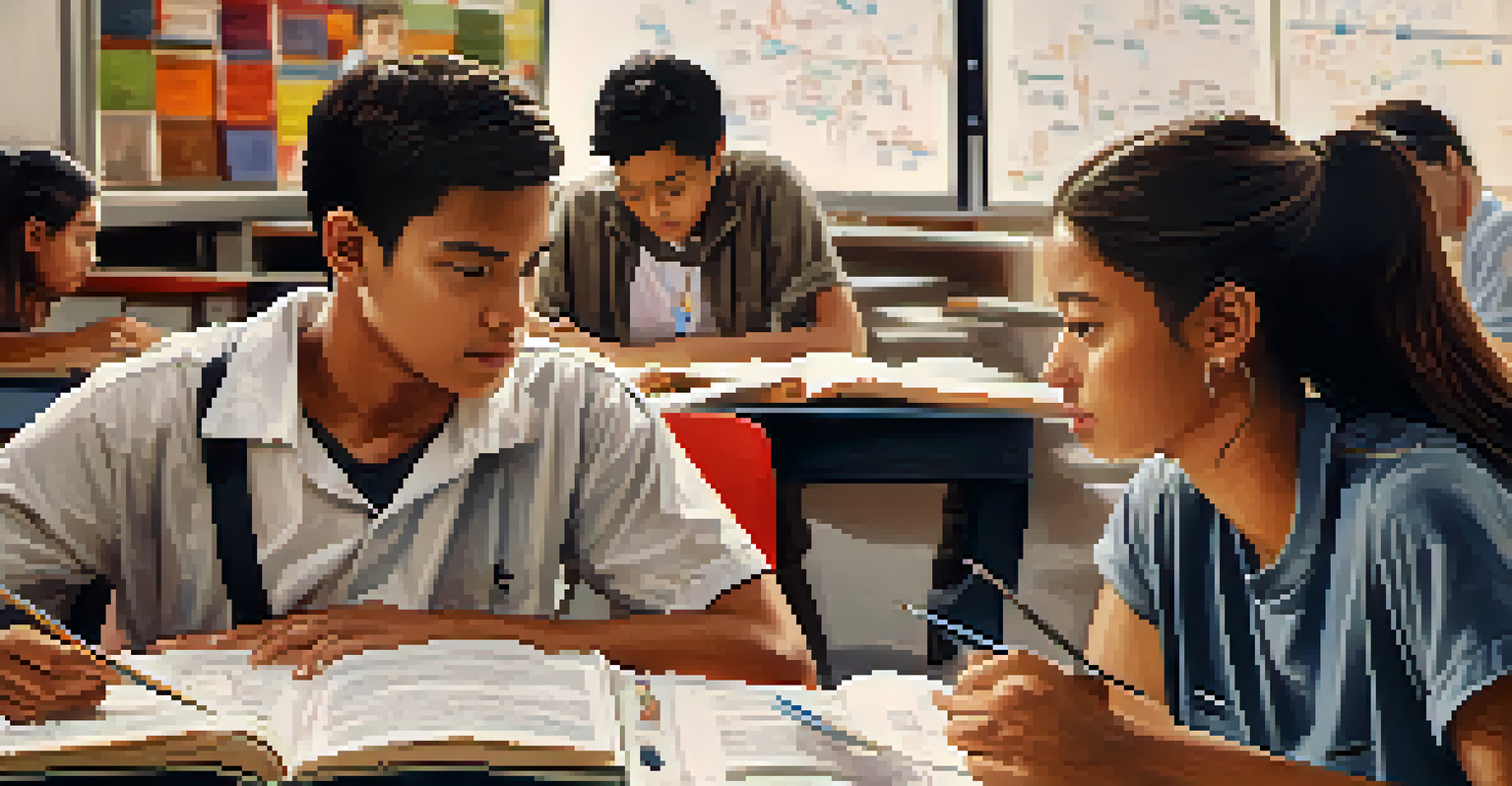The Influence of Peer Learning in Constructivist Education

Understanding Constructivist Education and Its Principles
Constructivist education is based on the idea that learners build knowledge through experiences and interactions. It emphasizes active learning, where students engage with their environment and each other to make sense of new information. This approach contrasts with traditional methods that often rely on rote memorization and passive reception of information.
Tell me and I forget. Teach me and I remember. Involve me and I learn.
In essence, constructivism encourages students to take ownership of their learning journey. They are not just recipients of knowledge; they actively participate in discussions, problem-solving, and collaborative projects. This shift in focus helps students develop critical thinking skills and a deeper understanding of the subject matter.
Peer learning fits seamlessly into this educational philosophy. By working together, students can share their insights, challenge each other's viewpoints, and collaboratively construct new knowledge. This dynamic interaction not only fosters understanding but also builds essential social skills.
The Role of Peer Learning in Student Engagement
Peer learning significantly enhances student engagement in the classroom. When students collaborate, they are more likely to participate actively rather than passively absorbing information. This engagement leads to a more vibrant learning environment where ideas flow freely, and students feel comfortable expressing their thoughts.

Moreover, peer interactions can spark curiosity and motivation. When students see their classmates grappling with the same concepts, it normalizes challenges and encourages a mindset of perseverance. They often feel more connected to their peers, which fosters a sense of belonging and community within the classroom.
Peer Learning Boosts Engagement
Collaborative learning encourages active participation, creating a vibrant classroom environment where students feel comfortable sharing ideas.
This community aspect of peer learning is crucial. As students work together, they develop relationships that can enhance their overall educational experience. They learn to communicate effectively, respect differing opinions, and work towards common goals, which are valuable skills both in and out of the classroom.
Building Critical Thinking Through Collaborative Learning
One of the most significant benefits of peer learning is its ability to cultivate critical thinking skills. When students engage with one another, they are often challenged to explain their reasoning, defend their ideas, and consider alternative perspectives. This process encourages deeper analysis and reflection on their own understanding.
Collaboration allows teachers to capture each other's fund of collective intelligence.
For instance, during group discussions, a student may present an idea that prompts others to ask questions or offer counterarguments. This back-and-forth exchange not only clarifies concepts but also pushes students to think more deeply about the material. They learn that there is often no single 'right' answer, which is a key tenet of critical thinking.
Additionally, peer learning helps students develop metacognitive skills. By discussing their thought processes, students become more aware of their learning strategies and can adjust them as needed. This self-awareness is crucial for fostering independent learners who can navigate challenges throughout their academic and professional lives.
Enhancing Social Skills Through Peer Collaboration
Engaging in peer learning not only benefits academic growth but also enhances social skills. Students learn to communicate effectively, manage conflicts, and collaborate with diverse groups of people. These interpersonal skills are invaluable in today's interconnected world, where teamwork is often essential in both academic and professional settings.
As students work in pairs or small groups, they practice active listening and empathy. They must be attentive to their peers' ideas and feelings, which fosters a respectful and inclusive learning environment. This practice is particularly important in a diverse classroom where students come from various backgrounds and perspectives.
Cultivating Critical Thinking Skills
Through discussions and challenges during peer interactions, students enhance their critical thinking and metacognitive abilities.
Furthermore, the ability to work well with others can significantly impact a student's future career opportunities. Employers often seek individuals who can collaborate effectively, communicate clearly, and contribute positively to a team. By honing these skills through peer learning, students are better prepared for the challenges of the workforce.
Fostering a Growth Mindset in Peer Learning Environments
Peer learning environments naturally encourage a growth mindset, which is the belief that abilities and intelligence can develop through effort and perseverance. When students collaborate, they witness firsthand that struggles and setbacks are part of the learning process. This realization helps them embrace challenges rather than shy away from them.
For example, if a student finds a particular topic difficult, their peer may share strategies that worked for them, reinforcing the idea that improvement is possible. This supportive atmosphere cultivates resilience and determination, essential traits for lifelong learning. Students begin to see failures as opportunities for growth instead of endpoints.
Additionally, as students celebrate each other's successes, they foster a culture of encouragement and support. This sense of camaraderie motivates them to strive for their best, knowing that their peers are invested in their success. This collective growth mindset ultimately leads to a more positive and productive learning experience.
Challenges and Solutions in Peer Learning
While peer learning offers numerous benefits, it also comes with challenges. One common issue is the potential for unequal participation, where some students dominate discussions while others remain passive. This can lead to frustration and disengagement for those who feel overshadowed.
To address this, educators can implement structured group activities that ensure everyone has a voice. Techniques such as assigning specific roles or using protocols that promote equal participation can help mitigate these challenges. This way, every student has the opportunity to contribute, share their ideas, and learn from their peers.
Social Skills Development
Engaging with peers fosters essential social skills like effective communication and teamwork, preparing students for future career success.
Another challenge is varying levels of understanding among students. Some may grasp concepts quickly, while others may struggle. Educators can facilitate peer learning by pairing students with different strengths or providing scaffolding to support those who need it. This approach not only enhances understanding but also reinforces the idea of learning from one another.
The Future of Peer Learning in Constructivist Education
As education continues to evolve, the role of peer learning in constructivist education is likely to grow even more significant. With the rise of technology and online learning platforms, students can collaborate and learn from peers beyond their physical classroom. This opens up a world of possibilities for diverse perspectives and experiences.
Moreover, the increasing emphasis on social-emotional learning highlights the importance of interpersonal skills in education. Schools are recognizing that fostering relationships and collaboration is just as crucial as academic achievement. Peer learning aligns perfectly with this shift, providing students with opportunities to develop essential life skills.

Looking ahead, educators will need to continue exploring innovative ways to integrate peer learning into their teaching practices. By embracing this approach, they can create dynamic, engaging, and supportive learning environments that prepare students for the complexities of the modern world.